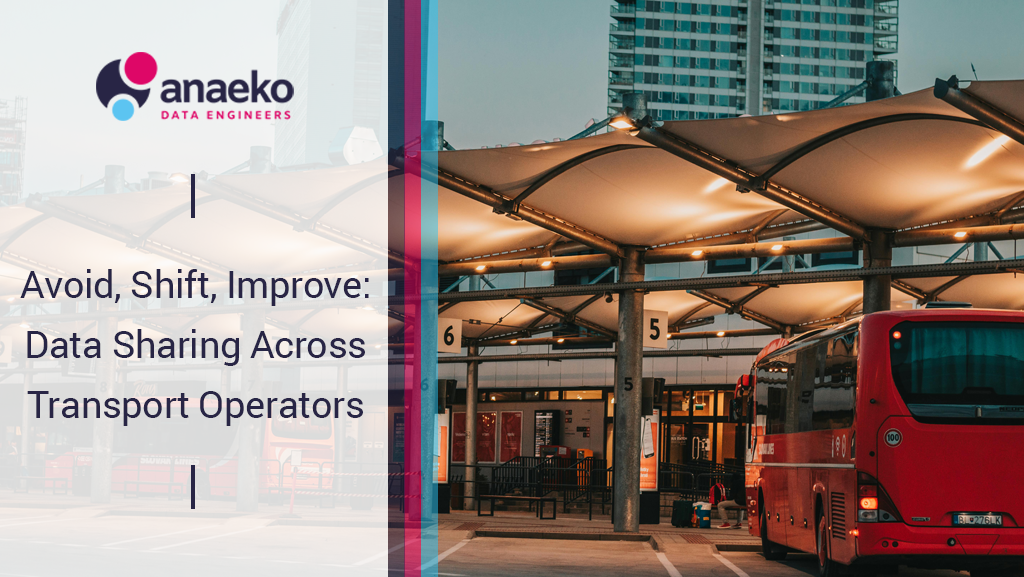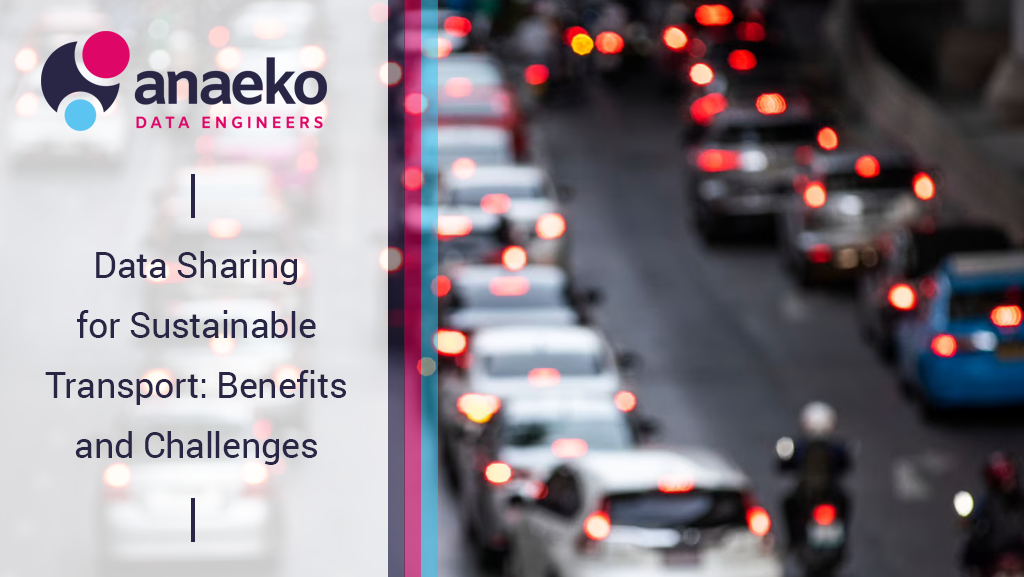Catch up on our recent webinar focused on sustainability within the transport sector. This is the first in a three part blog series that captures the discussions from the webinar.
Today's topic is: Data Sharing for Sustainable Transport, with a focus on working towards a greener planet using data-driven approaches.
Hi, everyone. My name's Michael O'Boyle and I lead the sales team here at Anaeko. We're a data engineering company, offering consulting solutions, and, very importantly, teams as a service. Our primary goal is to assist customers and partners in building and operating data and analytics platforms.
We have a wealth of experience in the transport and logistics sector. For instance, we've handled fleet data management, with Northern Ireland Water, assisting them with fleet reporting during the introduction of EV systems. We've also collaborated with Translink on bus and rail vehicle maintenance and staff safety, serving customers with a fleet of over 17,000 vehicles.
Moreover, we've engaged with driverless vehicle manufacturers and automotive services worldwide, extending our reach to global dealerships. Let's not overlook our contributions to public sector transport initiatives, including data discovery and analytics for national highways, Network Rail, and the Department of Infrastructure, all projects we're actively involved in today.
While we're certainly not newcomers to this field, we recognise the importance of continuous learning, especially in the ever-evolving landscape of sustainability.
Sustainability
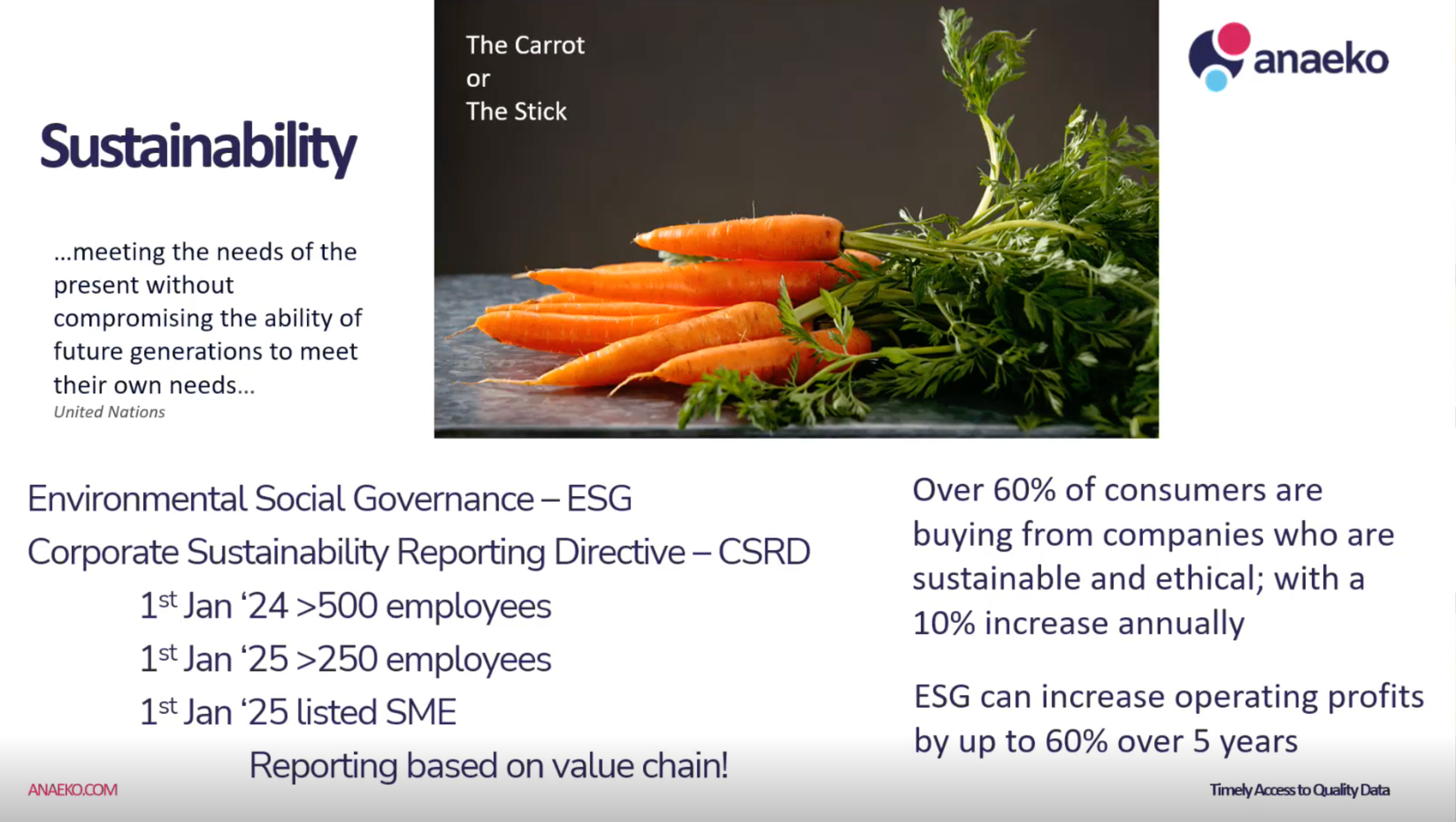
Source: My Day - Unpacking McKinsey: Five ways that ESG creates value ( https://www.my-dayapp.com/blog-posts/unpacking-mckinsey-five-ways-that-esg-creates-value )
Businesses are focused on meeting revenue targets and achieving ROI today, which means there's always a balancing act. However, sustainability presents an opportunity not only to meet these financial goals but also to foster sustainability within our own businesses, beyond just the environmental aspect. Consider the United Nations' emphasis on meeting present needs—it's not solely about ensuring a sustainable future.
"...meeting the needs of the present without compromising the ability of future generations to meet their own needs..." United Nations
We must generate revenue now and establish sustainable business practices in the present.
To achieve this, governments play a crucial role. They introduce directives, often wielding a figurative "stick," such as ESG (Environmental, Social, and Governance) directives, and in Europe, particularly in Ireland where I'm currently based, there's a significant focus on Corporate Sustainability Reporting Directives (CSRD). These directives, which extend beyond individual businesses to encompass the entire value chain, including aspects like data engineering, are already in effect, particularly for larger enterprises with more than 500 employees.
It's not a question of what we should do and when; it's about taking action here and now. The urgency is palpable, and there's a great deal we can accomplish in the present moment. That's the Stick.
The Carrot. The incentives for businesses today resemble a large carrot, offering numerous benefits. Consider this: Over 60% of consumers prefer to buy from companies that position themselves as both sustainable and ethical. This percentage continues to rise annually by 10%. This fact alone presents a compelling return on investment (ROI) story. Moreover, embracing Environmental, Social, and Governance (ESG) principles can potentially boost your operating profits by up to 60%. However, despite these promising numbers, many companies still grapple with the concept of ROI, viewing it as one of the biggest hurdles to overcome.
Decarbonisation in the Transport Industry
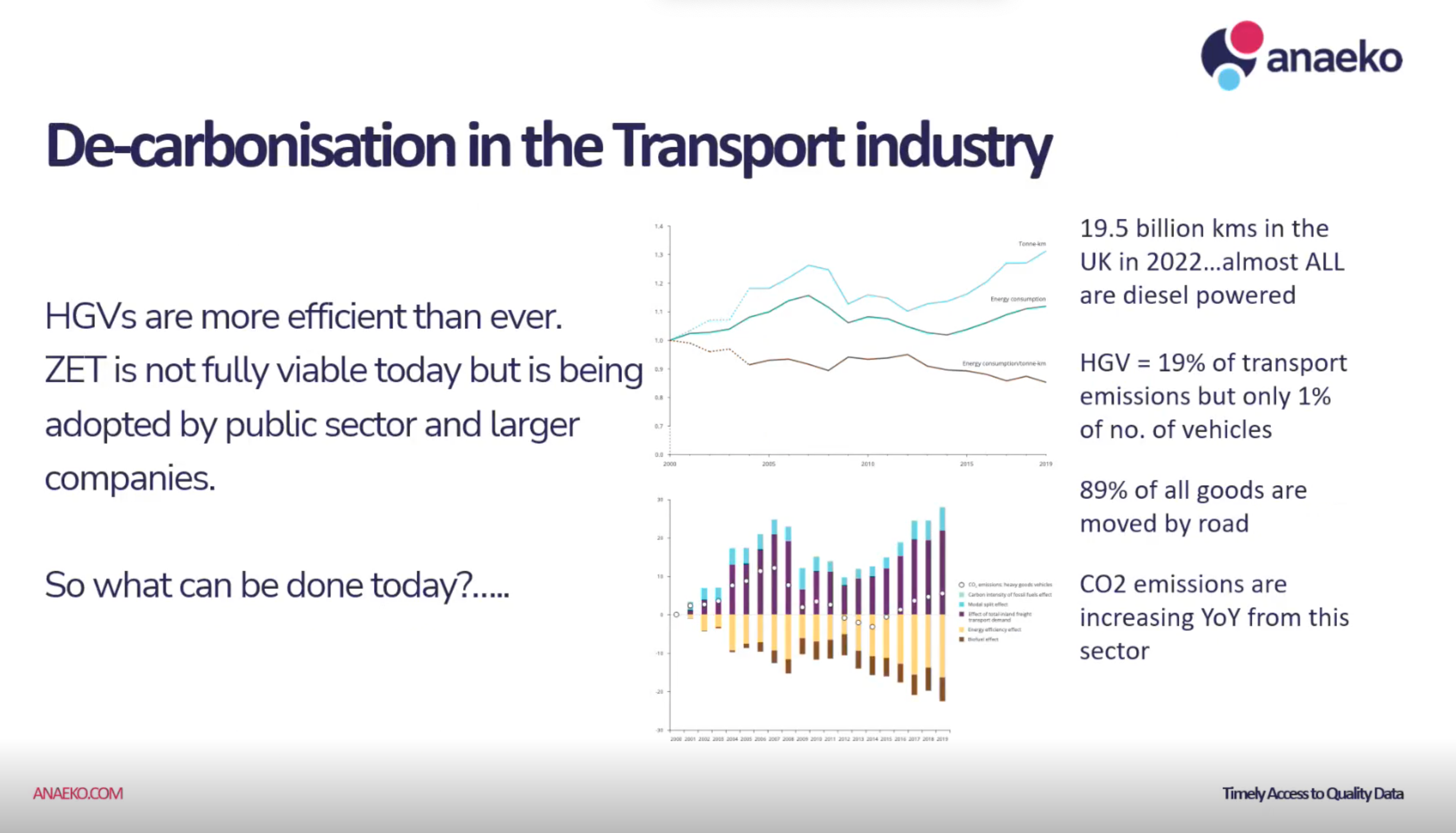
Source: World Economic Forum - How to decarbonize heavy duty transport and make it affordable ( https://www.weforum.org/agenda/2021/08/how-to-decarbonize-heavy-duty-transport-affordable/ )
Data Transparency Across the Supply Chain
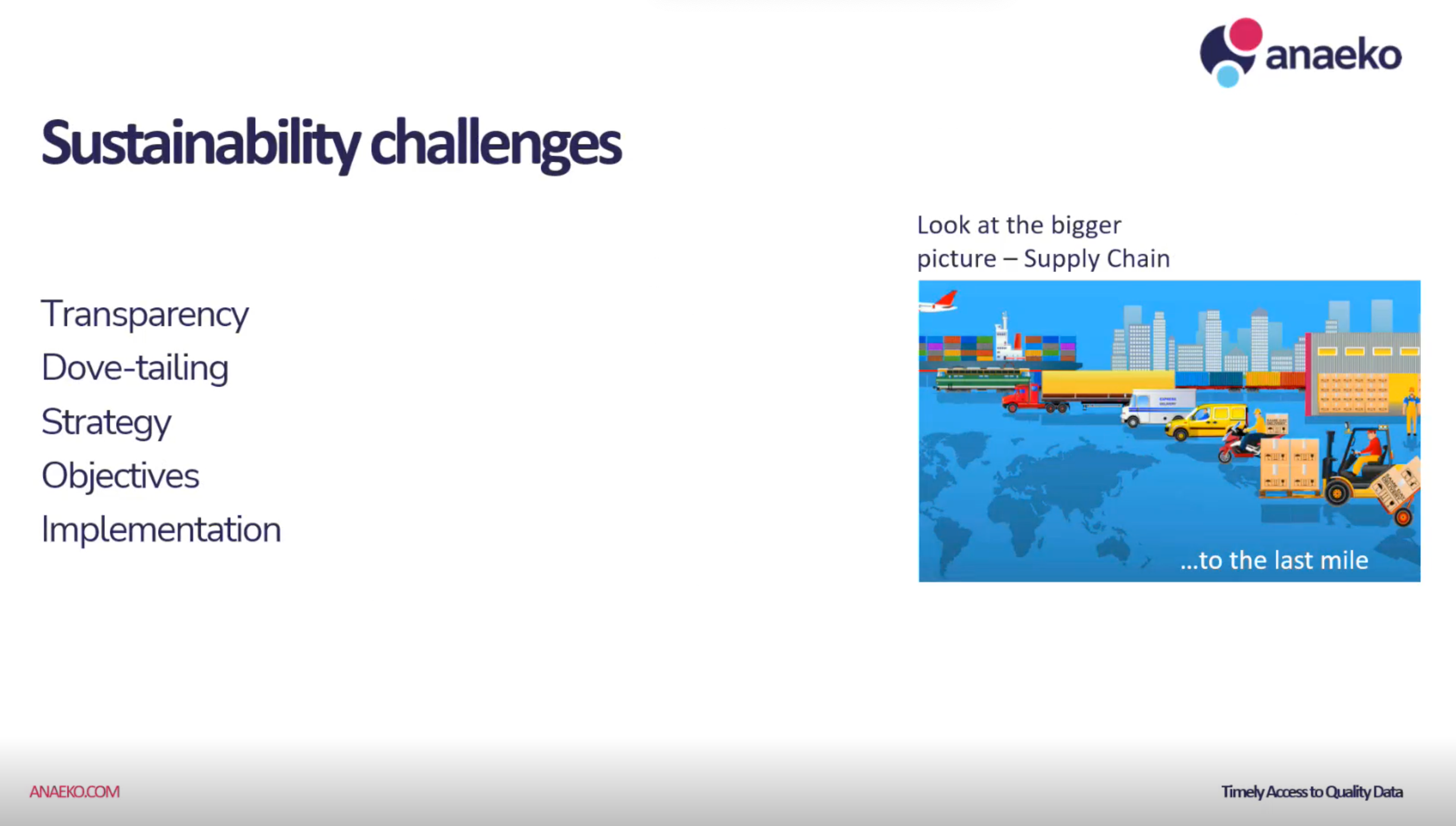
One of the foremost considerations, often cited as the driving force behind decision-making, is transparency. Achieving visibility across the entire supply chain is crucial, whether it pertains to emissions, or aspects like employee data from HR records, including training needs. The key is to ensure transparency throughout your business operations.
This entails a synchronised approach, commonly referred to as "dovetailing," wherein management aligns objectives from the top-down, cascading through all levels of the organisation and extending across various business units. Establishing these connections is pivotal for fostering transparency and formulating effective strategies.
It's imperative to develop comprehensive, long-term strategies with ambitious yet attainable objectives. This approach encourages buy-in from all stakeholders within the company, fostering a shared commitment to achieving sustainability goals. Clear vision backed by reliable data is essential in driving informed decision-making. Hence, the integration of sustainability and data becomes pivotal, promoting a data-driven approach to sustainability initiatives.
There are numerous actionable areas available today that not only contribute to reducing carbon emissions and enhancing ESG ratings but also yield tangible returns on investment—an aspect often cited as a significant challenge.
Tangible Benefits
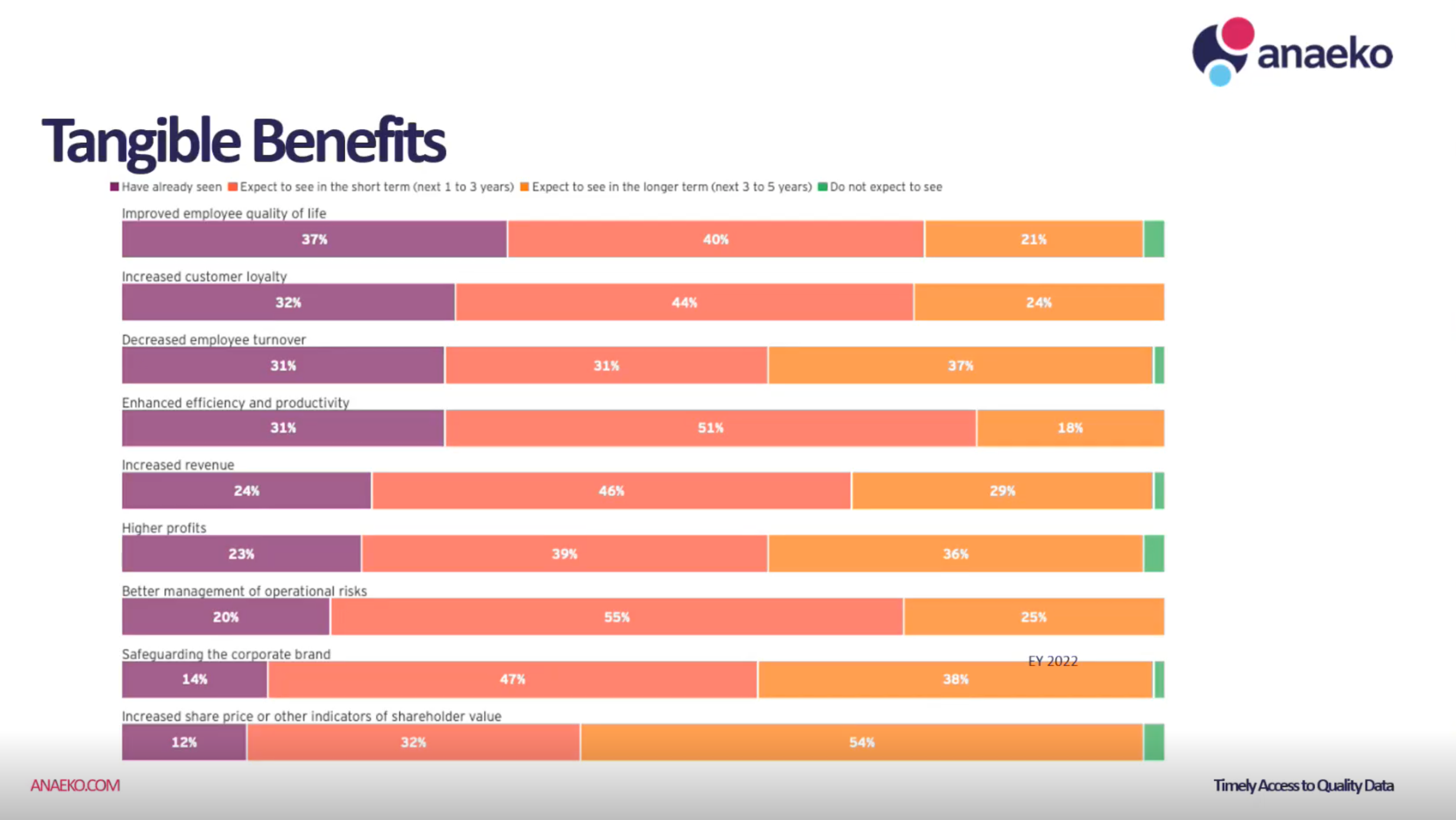
Topics: Data Analytics, Big Data, data sharing, transport, sustainability

